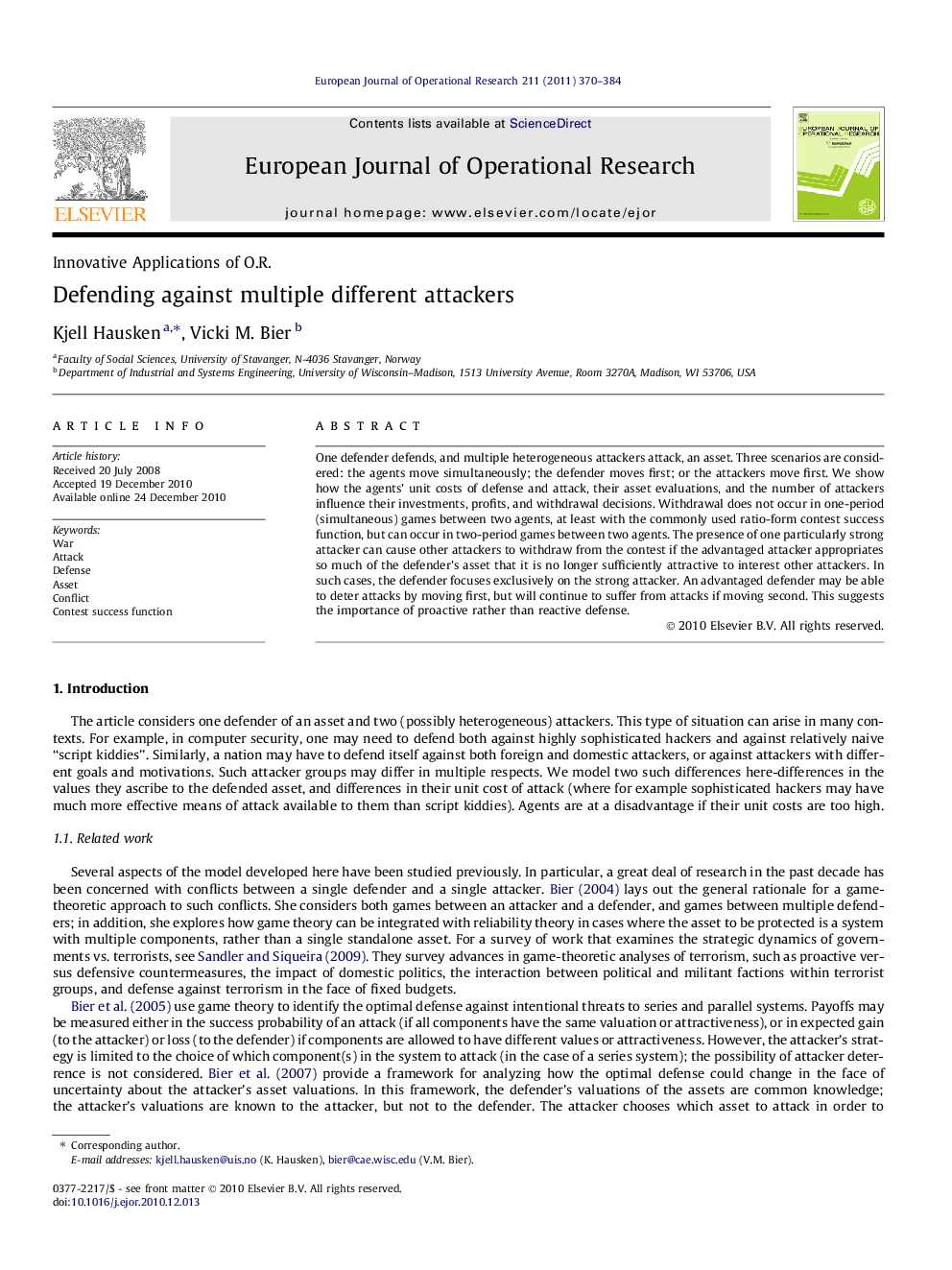| Article ID | Journal | Published Year | Pages | File Type |
|---|---|---|---|---|
| 478518 | European Journal of Operational Research | 2011 | 15 Pages |
One defender defends, and multiple heterogeneous attackers attack, an asset. Three scenarios are considered: the agents move simultaneously; the defender moves first; or the attackers move first. We show how the agents’ unit costs of defense and attack, their asset evaluations, and the number of attackers influence their investments, profits, and withdrawal decisions. Withdrawal does not occur in one-period (simultaneous) games between two agents, at least with the commonly used ratio-form contest success function, but can occur in two-period games between two agents. The presence of one particularly strong attacker can cause other attackers to withdraw from the contest if the advantaged attacker appropriates so much of the defender’s asset that it is no longer sufficiently attractive to interest other attackers. In such cases, the defender focuses exclusively on the strong attacker. An advantaged defender may be able to deter attacks by moving first, but will continue to suffer from attacks if moving second. This suggests the importance of proactive rather than reactive defense.
